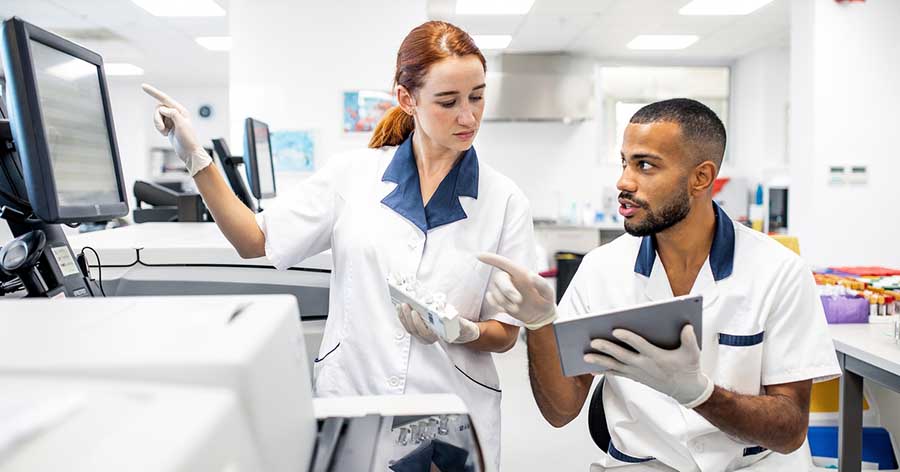The primary care diabetes specialist nurse (DSN) team in South Staffordshire PCT are a nurse-led specialist service. The team was formed as part of a redesign of diabetes care provision locally aiming to improve quality of care received in a person-centred approach with increased accessibility. A key aim has been to develop a responsive and locally based service, which puts the person with diabetes firmly at its centre. One of the team’s initiatives has been the development of late-night, 5–9.30 pm community specialist clinics at a local supermarket.
Background
The supermarket is centrally located with good bus service links, has a free, large car park and facilities all on one level so is suitable for people with disabilities.
The clinics allow specialist diabetes care to be managed in primary care, and referrals to this service come from general practices, community matrons, district nursing, secondary care and other specialist nurses. Appointments are booked via phone on a central number, allowing people to choose the clinic location and time to fit their lifestyle and commitments, but still retain continuity of the staff they see.
Improved access
The clinic is extremely popular, particularly with those who work and would normally have to take holiday or lose pay to attend appointments. The fact that people want to drive home from Wolverhampton, London, and Manchester, and then attend a clinic may illustrate how motivated they are to take control of their diabetes.
Frequently those seen in the late-night clinics have type 1 diabetes and have been unable to attend regular diabetes care for some years. These people tend to have more complicated problems related to diabetes. On referral these people generally have poor glycaemic control with frequent episodes of hypoglycaemia with few or no warning signs. Many are on older insulin regimens and frequently use vial and syringe, with some still mixing insulins.
Even though at first glance it is apparent that these people have poor glycaemic control, many have managed extremely well with little education and support, avoiding emergency admissions to hospital with diabetic ketoacidosis or hypoglycaemia. When discussing quality of life, many rate this as poor due to the frequent hypoglycaemia they experience. These clinics have reduced the frequency of hypoglycaemia with the use of newer insulins and up-to-date information.
Late-night clinics also help carers. The team’s oldest client is a woman in her 80s; she relies on her son to bring her for her appointments and he was unable to get time off during the day to take her to appointments.
In addition, we now have a near-patient testing HbA1c machine, as we have found attending for blood tests has also been an issue for clients. We are now able to use this during the consultation and offer a more complete service as a result.
Conclusion
The ability to access diabetes care out of normal hours has had a profound effect on these people’s diabetes control and HbA1c, as well as the development of self-management skills.
Using the supermarket means the team have ready access to a huge range of food items, and can spend time looking at packets and discussing carbohydrate counting with products people would normally buy. Helping people to understand what to look for on labels is particularly useful. As the team’s consultations are person-centred we support these people by focusing on specific areas that help them to meet their current action plan goals.
Feedback has been very positive. As one person commented:
“I like the fact it’s normal to come to a supermarket. Why should I have to visit a hospital? I’m not ill.”
As the clinics have proved so popular the team have increased the frequency to twice weekly. The clinics have clearly met a previously un-addressed need.





Developments that will impact your practice.
29 Aug 2025